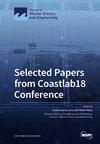水下无线物联网网络中联合学习的安全动态调度
IF 2.8
3区 地球科学
Q1 ENGINEERING, MARINE
引用次数: 0
摘要
联合学习(FL)是一种分布式机器学习方法,可以使物联网(IoT)边缘设备在不明确共享本地数据的情况下协同学习机器学习模型,从而实现网络中的数据聚类、预测和分类。在以前的工作中,人们提出了一些基于在线多臂匪盗(MAB)的FL框架,以实现动态客户端调度,从而提高水下无线物联网网络中FL的效率。然而,在线动态调度的安全性越来越受到质疑,而这一点对于水下无线物联网尤为重要。在这项工作中,我们研究了 FL 框架的安全动态调度,可以防止水下 FL 辅助无线物联网网络中的恶意客户端。具体来说,为了共同优化 FL 的通信效率和安全性,我们采用了基于 MAB 的方法,并提出了基于置信上限的智能合约(UCB-SCs)和基于置信上限的智能合约与安全预测模型(UCB-SCPs),以解决水下时变信道上的最优调度方案。然后,我们给出了 UCB-SC 策略和 UCB-SCP 策略的预期性能遗憾值的上界;这些上界意味着在特定条件下,两种拟议策略的遗憾值在通信轮次上呈对数增长。我们的实验表明,提出的 UCB-SC 和 UCB-SCP 方法显著提高了水下无线物联网网络中 FL 框架的效率和安全性。本文章由计算机程序翻译,如有差异,请以英文原文为准。
Secure Dynamic Scheduling for Federated Learning in Underwater Wireless IoT Networks
Federated learning (FL) is a distributed machine learning approach that can enable Internet of Things (IoT) edge devices to collaboratively learn a machine learning model without explicitly sharing local data in order to achieve data clustering, prediction, and classification in networks. In previous works, some online multi-armed bandit (MAB)-based FL frameworks were proposed to enable dynamic client scheduling for improving the efficiency of FL in underwater wireless IoT networks. However, the security of online dynamic scheduling, which is especially essential for underwater wireless IoT, is increasingly being questioned. In this work, we study secure dynamic scheduling for FL frameworks that can protect against malicious clients in underwater FL-assisted wireless IoT networks. Specifically, in order to jointly optimize the communication efficiency and security of FL, we employ MAB-based methods and propose upper-confidence-bound-based smart contracts (UCB-SCs) and upper-confidence-bound-based smart contracts with a security prediction model (UCB-SCPs) to address the optimal scheduling scheme over time-varying underwater channels. Then, we give the upper bounds of the expected performance regret of the UCB-SC policy and the UCB-SCP policy; these upper bounds imply that the regret of the two proposed policies grows logarithmically over communication rounds under certain conditions. Our experiment shows that the proposed UCB-SC and UCB-SCP approaches significantly improve the efficiency and security of FL frameworks in underwater wireless IoT networks.
求助全文
通过发布文献求助,成功后即可免费获取论文全文。
去求助
来源期刊

Journal of Marine Science and Engineering
Engineering-Ocean Engineering
CiteScore
4.40
自引率
20.70%
发文量
1640
审稿时长
18.09 days
期刊介绍:
Journal of Marine Science and Engineering (JMSE; ISSN 2077-1312) is an international, peer-reviewed open access journal which provides an advanced forum for studies related to marine science and engineering. It publishes reviews, research papers and communications. Our aim is to encourage scientists to publish their experimental and theoretical results in as much detail as possible. There is no restriction on the length of the papers. The full experimental details must be provided so that the results can be reproduced. Electronic files and software regarding the full details of the calculation or experimental procedure, if unable to be published in a normal way, can be deposited as supplementary electronic material.
 求助内容:
求助内容: 应助结果提醒方式:
应助结果提醒方式:


